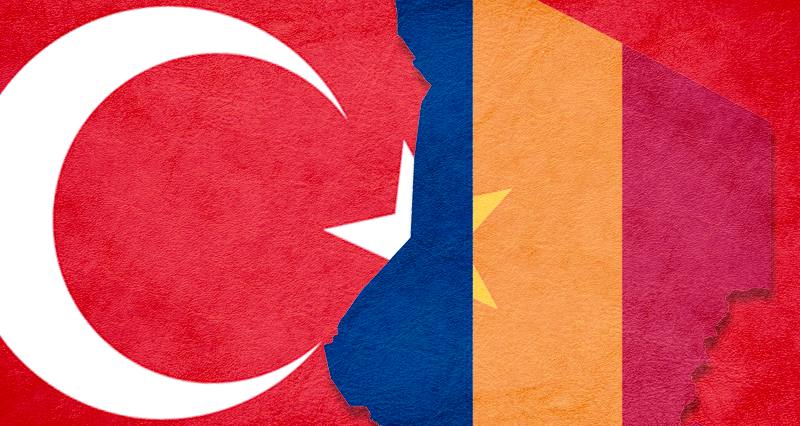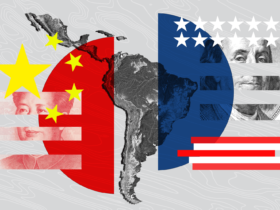Ankara’s position should be evaluated in the context of a broader strategy.
Ankara’s position should be evaluated in the context of a broader strategy.
By Feyyaz Erkin Eşli
Amid the escalating regional instability in the Sahel and the French military withdrawal, Chad faced the need to find a new strategic partner. As recent events show, Türkiye is quickly stepping into this role.
According to numerous reports from authoritative media, in January 2025, former French military bases in N’Djamena, Faya-Largeau, and Abéché were handed over to Türkiye’s control. This development became possible for several reasons.
Firstly, the French military withdrawal inevitably weakened Chad militarily. With constant threats along its borders — terrorist activity in the west, insurgency in the north and south, and the influx of Sudanese refugees in the east — the government in N’Djamena urgently required security guarantees and a new strategic ally. In this context, Türkiye, which has been increasingly active on the African continent, became the obvious choice.
Secondly, the instability at the Sudanese border makes Chad vulnerable to cross-border arms and ammunition smuggling, some of which, according to Sudanese authorities, ends up in the hands of the Rapid Support Forces (RSF) fighters with the help of the UAE. On March 23, 2025, Yasser al-Atta, a Sudanese army commander, publicly declared on Al Jazeera that Chadian airports in Amdjarass and N’Djamena could become “legitimate military targets” for Sudan. At the same time, several attacks occurred in the border regions of Sudan. Chad could not ignore such threats.
The choice of Türkiye, as experts emphasize, is driven not only by its military strength and proven effectiveness of weapon systems but also by Ankara’s growing political significance on the global stage. Türkiye’s drones, as demonstrated in recent conflicts, have shown high effectiveness and have become a symbol of the country’s military transformation.
Ankara has already started military cooperation with Chad, supplying many types of aviation equipment. Among the delivered systems are the Hürkuş light combat aircraft, ANKA reconnaissance-strike drones, and Bayraktar TB2 strike drones. Additionally, there are reports of plans to deliver other Türkiye’s aviation and air defense equipment, signaling Türkiye’s intention to provide comprehensive military support to Chad.
However, even greater ambitions for Ankara lie behind the military cooperation. Türkiye views Chad as a key element of its long-term strategy, both in military and technological terms.
According to sources, Türkiye is exploring the possibility of building a spaceport in Chad. This initiative fits into the country’s ambitious space program. Türkiye has already launched over ten satellites, but all launches have taken place from launch sites belonging to other countries: the USA, Russia, and France. Since the founding of the Türkiye’s Space Agency in 2018, and the presentation of a 10-year space program in 2021, Ankara has been steadily working towards creating its own launch infrastructure.
In late 2024, Türkiye began constructing a spaceport in Somalia. However, internal instability, combined with ongoing regional tensions, including between Somalia and Ethiopia, makes Chad a more stable alternative. The proximity to the equator, vast uninhabited areas, and relative political stability create good conditions for placing space infrastructure in this Central African country.
Thus, Türkiye’s presence in Chad should not be viewed solely through a military lens. It is part of a broader strategy in which Africa becomes not only an arena for diplomatic and military activity but also an important frontier for Ankara’s high-tech ambitions.
As it becomes a new strategist in Central Africa, Türkiye is betting on a long-term presence in Chad, where security interests are closely intertwined with economic and technological projects.

















Leave a Reply